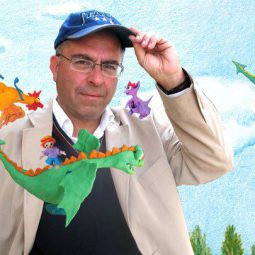
I met Shannon through Amy Winehouse. But that’s another story.
This one is about science and scientists.
I told Shannon that I am not a scientist anymore.
She said “Once a scientist, always a scientist”.
So what is a scientist?
Shannon says that one of the things she does a lot in her lab is mentor. at the high school level. The high school kids during her B.Sc. and M.Sc. were from a poor neighborhood in New Britain, and they didn’t really want to do science. In the after school program, there were big problems with pregnancies (not the teachers’, the students’).
Shannon’s job was to make sure that they were not having sex. During the after-school program.
“They didn’t want to do science and I had to convince them, by making it as simple as possible.”
What are the bones of science? What does a scientist really do?
A scientist observes things. Writes them down. Even if they don’t make sense at the time. And makes connections between them.
Okay, I say, but that is exactly what poets do. “Are poets scientists?” I ask Shannnon.
Shannon thinks that poets are scientists. They describe life but they use words instead of molecules.
One of her students was interested in cartoons. “I asked him to draw what we were doing. And that is what I do. I find out what makes each student tick, what their interests are and let them express science like that.
Nobody has to fit the mold. They can express science however they like.”
But I say, whoa! That’s expressing science, not doing science. Scientists are supposed to use the scientific method, aren’t they? That separates them from poets, musicians, natural scientists and philosophers? No?
Shannon says that if you are re-writing poems or music, isn’t that hypothesis testing? How well does this piece or poem describe what I’m trying to express?
Give me an example, I ask her.
One of Shannon’s favorite poems is “This be the verse” by Philip Larkin. It is a completely f%%%ed-up poem, and most people totally disagree with its message which is….
“It means different things to different people. It’s just like two scientists looking at the same experiment, phenomenon and drawing totally different conclusions, based on their background.”
Bias? I ask her?
Well, she says, bias is based on your background.
But, I say, scientists are supposed to be OBJECTIVE!!!!
How can they be biased? Don’t they all use the same scientific method of formulating a hypothesis and testing it using objective criteria???????
“If you show the same experiment to a microbiologist and cell biologist they will draw entirely different conclusions”, Shannon says. “How objective is that?” she asks.
“But, there are so many pieces working together in biology that they both are right.”
Ok, I admit that might be the case in certain circumstances. But in my career I have seen many scientific arguments on dichotomous disagreements. Volta vs. Galvani for one.
How about in my field of bad breath? Some say that it’s only sulfur gases. Some say that it’s not only sulfur gases. And this argument is contentious, dichotomous and has been going on for decades.
Shannon thinks that you have to be a poor scientist to say “know anything”.
So in that case the definition of a scientist as someone in the pursuit of knowledge is misleading, because you never really know anything for sure.
Just as much as a poem is able to describe life, a scientific theory can describe life. There will be exceptions and inclusions.
I have to tell her now why I don’t believe in science any more. Shannon I say, believing in science turns it into a religion. So if science is a religion, then I don’t ascribe to the faith any more. I have learned in my career that scientists are no more objective than poets, philosophers on bank clerks. They believe in what they are doing the same way that I used to go to synagogue. Hey, they even sacrifice animals!!
Shannon agrees. Her friend says “Shannon you are a woman of science, and that is your religion.”
In a recent meeting in her Ph.D. lab (an evolution lab), most of the students defined themselves a atheists. She argued that she was a pantheist. Shannon believes that everything is deity and that deity is in everything. Blades of grass, stones, molecules, atoms, neutrons. Her boss argued that pantheism and atheism are the same thing.
I would argue that they are all beliefs. Anything you believe in makes it a religion.
Science is not supposed to be something you believe in. It’s supposed to be something objective, true, unerring.
And I don’t believe that people are capable of that kind of thought. I don’t believe that people are able to make objective observations. Scientists are people, and some friends would argue even about that.
Shannon says “who says what science is supposed to be? Is it science if you believe that there is a proton in the middle of an atom? We know that. No one is trying to prove or disprove that any more. What scientists are working on is the unknown. And you can’t be objective about that because you don’t know. In order to come up with ideas, you must base them on what you know or have learned. Which is your bias or background.
So, I ask her, the real scientists are explorers, like Vasco da Gama, Columbus. Both of them set out with dogmas, beliefs, theories, hopes and greed. Same as Jimi Hendrix and Janis Joplin, she adds. Wouldn’t you say they were explorers?
Yes, but I would add Amy Winehouse to that list.
Which kind of says it all, doesn’t it. Shannon nods in approval. “Science is an art”, she says.
In that case, I am a scientist after all 🙂
Published: Jul 6, 2015
Latest Revision: Jul 7, 2015
Ourboox Unique Identifier: OB-62323
Copyright © 2015








